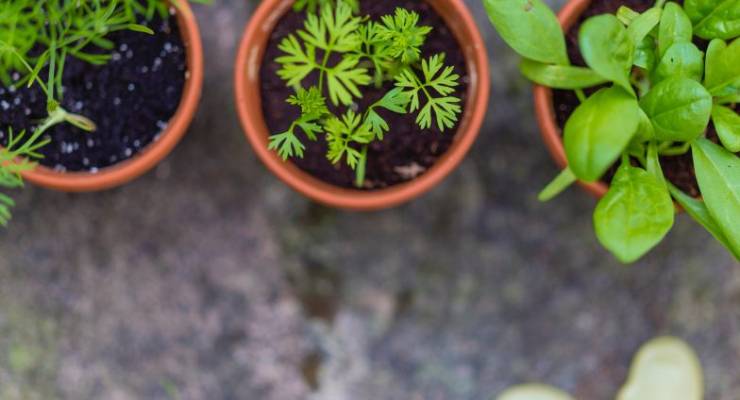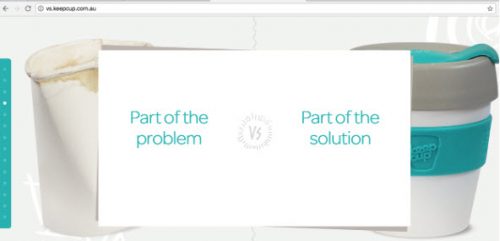
Towards the end of last month my toilet paper brand reminds me to celebrate Plastic Free July:
Of course, another easy way to cut down your plastic is to top up your toilet paper!
Hugs,
Who gives a crap.
During Plastic Free July, masses of acquaintances on social media and the wider internet take to reducing their plastic intake, swapping their glad-wrap for beeswax, and their coffee cup for a Keepcup. They sweep proudly past the hoards at the self-serve checkout, a reusable bag triumphantly on display. They document this all on social media and urge us to consider turtles and swear off straws. Turtles are important, yes, but individual responsibility in environmentalism is a con. We can’t buy our way out of this.
As a vegetarian, worm farmer, cyclist, bees-wax-wrapper, herb-gardener etc., I want to feel like these actions have a purpose. But really, what place do these actions have in terms of climate change mitigation, and broader environmentalism?
The environmental actions that these campaigns lead us to normally involve purchasing something. Buy a Keepcup, buy a water bottle, buy a reusable bag. Or as my toilet paper company reminded me, buy some more toilet paper! That will save the planet! Our individual environmental responses are integrally tied to a consumerist problem, propelled by “green” marketing and social trends.
Go on to the Keepcup website, you can either be “part of the problem, or part of the solution”. I know what side I’d rather be on.

This kind of binary discourse of right and wrong reveals the way that environmental action has been represented and constructed in Australia. Individual action, responsibility and guilt boil right down to our Australian social values as “team players”. It entitles us to judge those who don’t take up these actions. I catch myself unsympathetically eyeballing people at cafes for not using a Keepcup. But really, whose values is this action representing and whom is it excluding?
Environmentalism as a concept has frequently been criticized for its whiteness. Really, any “solution” that relies on individual consumer responsibility is contributing to inequality in environmentalism. Measuring individuals as equal in terms of responsibility does not adequately represent environmental pasts, presents and futures, in terms of who has exploited, who continues to reap the rewards, and who will be most vulnerable to environmental hazards in the future. It pools us together in an “environmental crisis” and asks every one of us to do their “fair share”. But environmental issues are not fair.
Consumerist environmentalism is so appealing to white middle-class Australians because it relies on very little change to how we live our lives. Shows like the War on Waste are attractive, as it positions us as green warriors who fight the waste problem one coffee cup at a time. It affirms that we can continue our “do-gooding” behavior by simply changing brands, whilst still maintaining order. Frankly, this is at odds with the societal upheaval that may be required to confront our environmental truths.
This is not to discount the efforts in these every day changes, it is not that you should stop. Instead, you should stop patting yourself on the back.
It doesn’t end here. These actions rely on a system of individual consumers with equal capacity for change. It is not near enough, or fair, to guilt all Australians into using a Keepcup and wash our hands of environmental issues. This is a capitalist system where all people are not equal, we have different capacities. As individuals, we cannot be responsible for real change, but as a whole we are.
Councils and government must be the ones to respond to environmental issues and Australian citizens must demand it from them. Maintaining individual consumer responsibility is convenient for governments, as our economy is built heavily on environmental degradation. Individual environmental actions can only go so far if the collective interest still lies in ecological deterioration. The buck must be turned to them to see real change. If you care about the environment, perhaps think twice before you buy another KeepCup (use a mug from home?). Instead, chat to your MP, send them a letter, call them, tell them you vote for policy. Then you can pat yourself on the back for investing in an environmental future not a consumerist one.
Ella Plumanns Pouton teaches Environmental Politics and Disaster Resilient Cities at the University of Melbourne. Her research interests surround environmental political issues, particularly surrounding climate change adaptation, mitigation and conservation ecology.
What do you think about consumer-based solutions to environmental problems? Send your comments to boss@crikey.com.au.







We’re not running out of mineral resources, we’re running out of places to put our wastes. Perhaps we should drink the coffee, then eat the cup.
What has the “class” or otherwise of coffee drinkers got to do with this moan?
Or their race?
“Consumerist environmentalism is so appealing to white middle-class Australians”
Have Asian Australians, or other non”whites” got a different attitude?
A keep cup wastes water every time you clean it. I would happily drink my coffee from a totally biodegradable cup guilt free. Better the govt outlaw plastic packaging altogether, now that would make a difference. There’s always paper, bakelite, glass, aluminium and now biopolymers, but as always it’s govt regulation that’ll force the issue, so not anytime soon in this country.
This is strange reasoning. Water is used in the production and transport of those things, and you can batch clean dishes. Do you have no dishes at home?
Draco, I was having a (very mild) go at the author’s obsession with KeepCups. I have mugs at home of course, but like millions of us, I don’t have a mug (and certainly not one of those ridiculously priced ‘keepcups’) with me when I go for a takeaway latte. The govt could easily regulate to make all takeaway cups biodegradable, but of course, as with plastic bags/plates/cutlery/packaging, they don’t. Coffee vendors could just as easily use biodegradable cups, but they don’t.
This is negativity worthy of Tony Abbott.
Racist dog whistling worthy of Peter Dutton.
Click baiting worthy of the Murdoch Press.
That I find it here, deeply depressing.
The article berates us for our tokenism, and yes, perhaps that is depressing. However, it hints at resolution. Given a happenstance sequence of horrific climatic global disasters, we may find the streets are being marched by those “who will be most vulnerable”. Hopefully, a prelude to the “societal upheaval” needed for an effective global decarbonisation. Our successors will live in exciting times.
The truth can be painful and without strong government action by all levels will be very painful.
Look at the things we do:
1) we buy plastic bottled water.
2) we accept disposable consumerism as normal.
3) we are gulled into drinking chemical piss by advertisers.
4) we pollute the atmosphere we breath because the alternative costs a bit more.
5) we dispose of a car because it ran out of fuel. It won’t go, it’s finished.
The last one is a joke, sort of.
I feel like I watched a different program to the writer of this piece. Most of both series of the show is about crap policy, industrial waste, commercial waste etc. Most of the stunts are him chasing government officials and businesses.